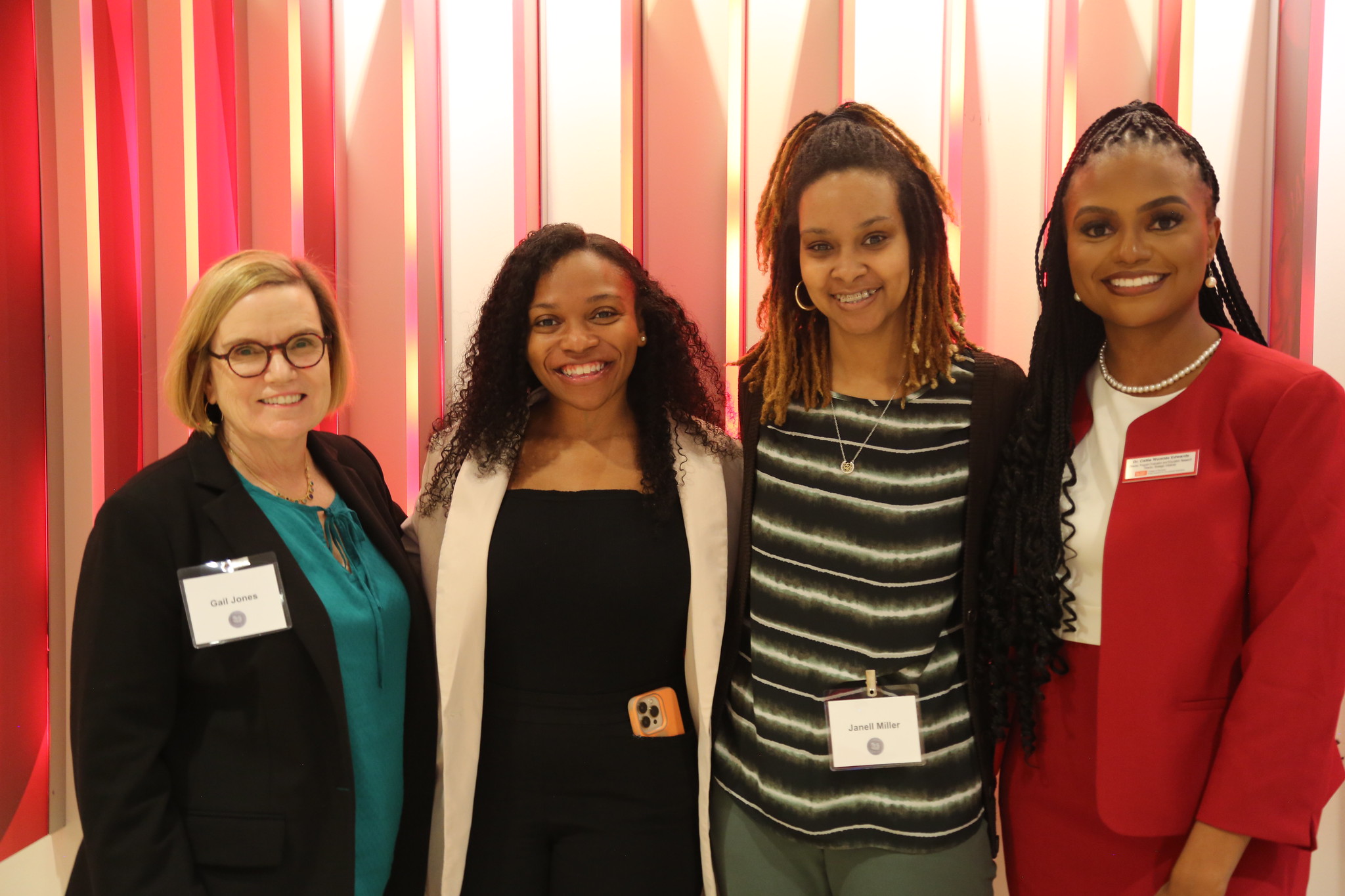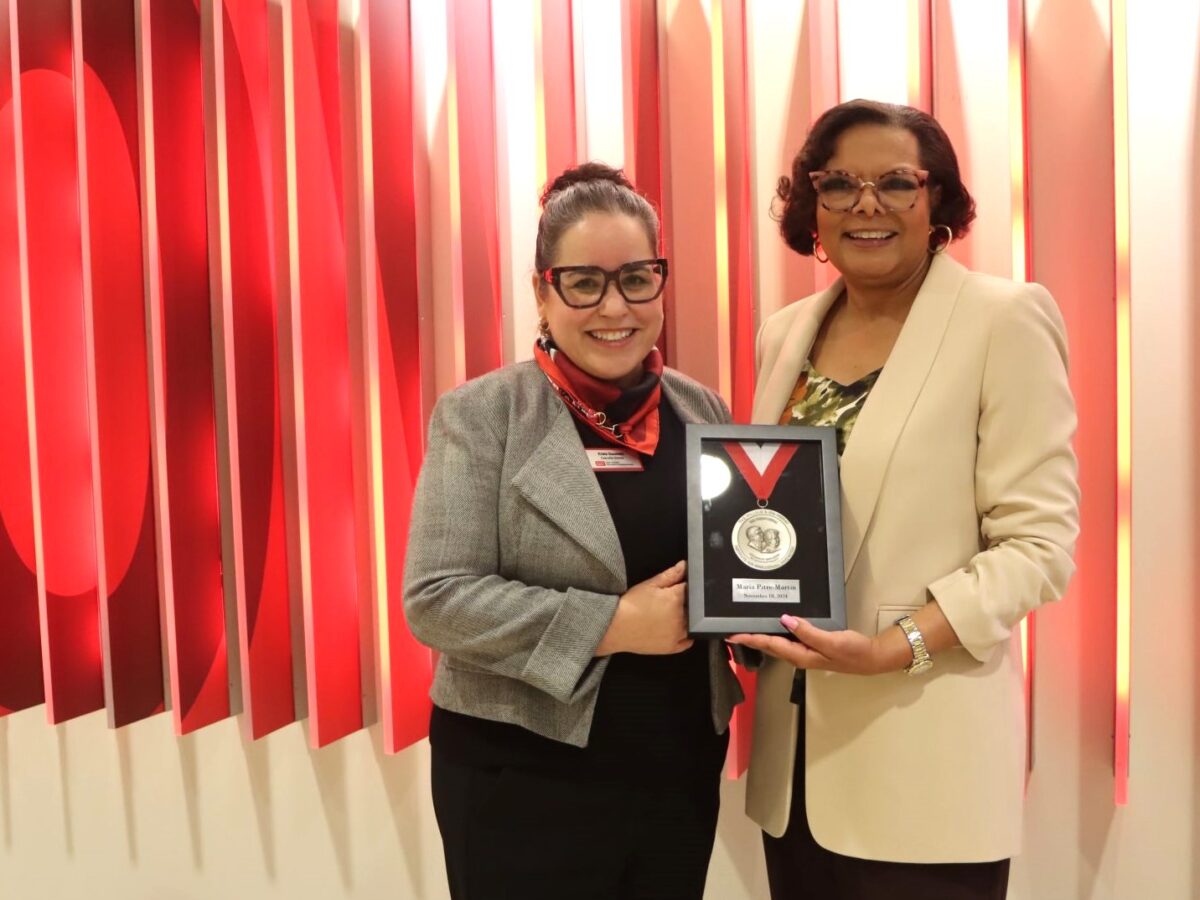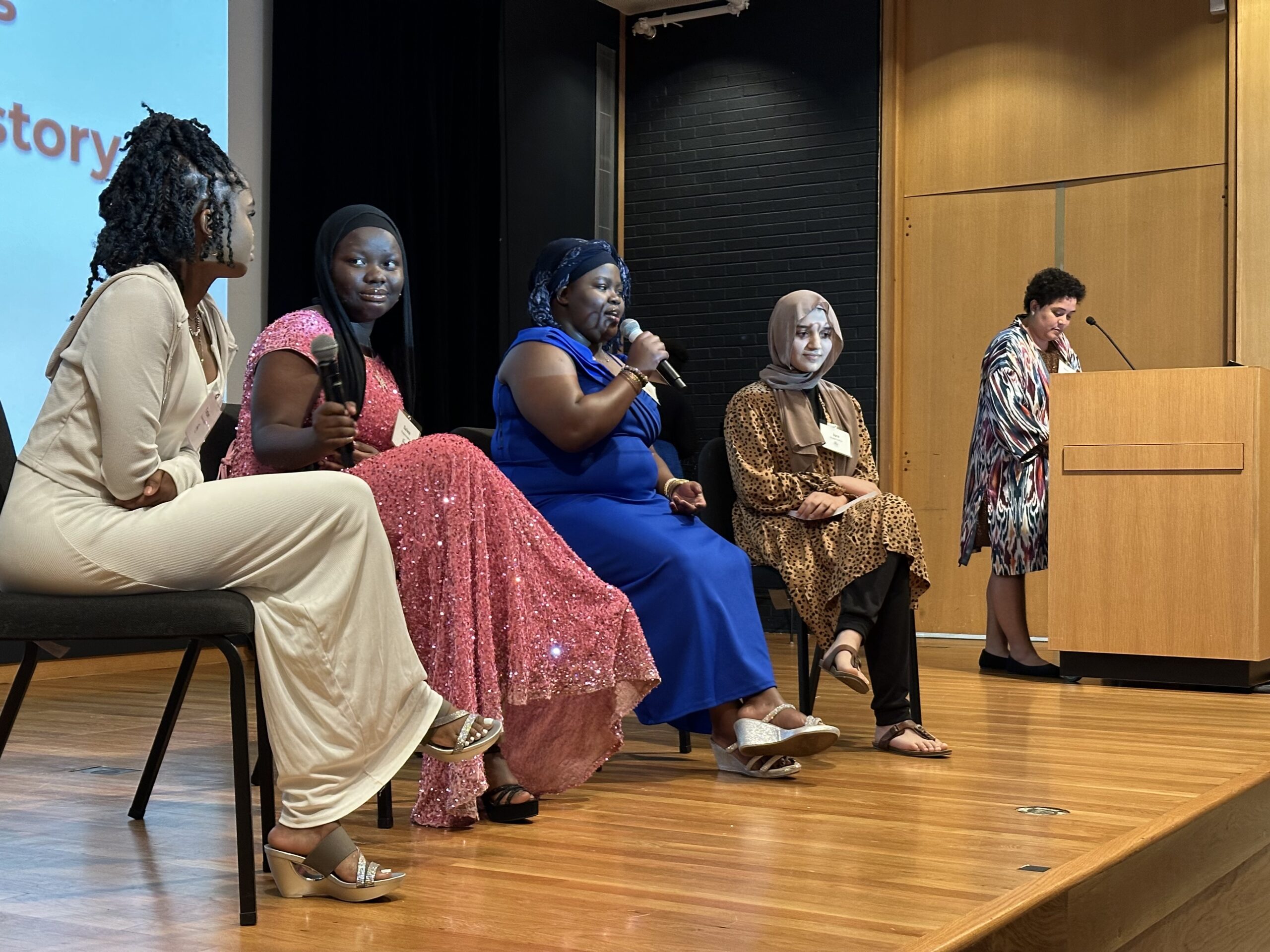Friday Institute Team to Support Next Phase of the North Carolina Digital Equity Plan in New NCDIT-Funded Project
A new two-year, $2.5 million project funded by the N.C. Department of Information Technology (NCDIT), in collaboration with North Carolina Central University, will enable the Friday Institute for Educational Innovation’s Program Evaluation and Educational Research (PEER) Group and Digital Learning team to lead the effort in managing and supporting initial planning and implementation of the North Carolina Digital Equity Plan.
Principal investigator (PI) Erin Huggins, associate director of program evaluation and educational research at the Friday Institute; co-PI Emma Braaten, director of digital learning at the Friday Institute; and co-PI Florence Martin, professor of learning, design and technology in the NC State College of Education, will lead the recently awarded project, entitled “NC Digital Equity and Learning Implementation.”
“I am most excited to be working with the state and local partners to address the needs of residents, especially those most vulnerable populations, so they may live and thrive in a digital society,” said Huggins. “We are particularly excited to support efforts to advance the workforce, education, health care and civic engagement sectors with an eye on identifying sustainability and scalable practices.”
The NCDIT’s Office of Digital Equity and Literacy is working to ensure that all North Carolinians can afford a high-speed internet subscription and have the devices and skills necessary to participate in the digital economy. As part of this work, they have created a comprehensive North Carolina Digital Equity Plan with significant feedback from individuals, organizations and communities across the state that have been excluded from digital opportunity or were deeply involved in digital equity and inclusion support and research.
The need for this project stems from the Digital Equity Act of 2021, which aims to close the digital divide and provide digital equity and access for all people in the United States to “get an education, invest in skills training, apply for jobs, access unemployment benefits and more.” This project addresses the digital skills education that is needed for all individuals, from basic skills, such as turning on a computer, to advanced skills, such as cybersecurity and programming.
The PEER Group will lead the effort to manage and support initial planning and implementation of the North Carolina Digital Equity Plan. One key phase will focus on device access and deployment, working with Digitunity and state partners to develop a hub-and-spoke model to train and support local organizations to serve as device distributors and refurbishers. In addition, they will support the development of measurement and assessment tools that will be used for both Digital Champion grants as well as Digital Equity subgrants, and data collection and cleaning for the Tech Resource Finder– a soon-to-be-launched publicly accessible tool for residents to find local digital tools and resources, such as computer labs, training, WiFi and tech support. Support researchers at NC Central University will conduct user testing of the tool. The PEER Group will also provide oversight and support for the BAND NC team at the Institute for Emerging Issues at NC State to convene up to 200 subgrantees annually to share information and support the development of a cohesive statewide network focused on digital equity and inclusion. Finally, they will update and plan for redeployment of the state’s Digital Equity Survey, which is a needs assessment that will be used to identify where they need to target efforts moving forward and how much progress is being made toward statewide digital equity and inclusion goals.
The Digital Learning team will be collaborating with NCDIT’s Office of Digital Equity and Literacy to identify and define digital literacy standards, including online health and safety for all North Carolina residents, launch and support a digital navigator network of community-based digital leaders, and design and deploy curriculum around the digital literacy standards to foster digital literacy among all residents regardless of age, geography or experience.
“While digital literacy standards for K-12 students have been in place for almost a decade, this work allows us to focus on defining and developing digital literacy for North Carolina adults,” said Braaten. “Addressing this need is crucial in ensuring that all residents, especially in underserved and under-resourced communities, gain the skills necessary to navigate and succeed in a digital world. This initiative represents a significant opportunity to create accessible resources and strategies that will have a lasting impact on closing the digital divide and on empowering communities through meaningful, targeted support.”
- Categories:


